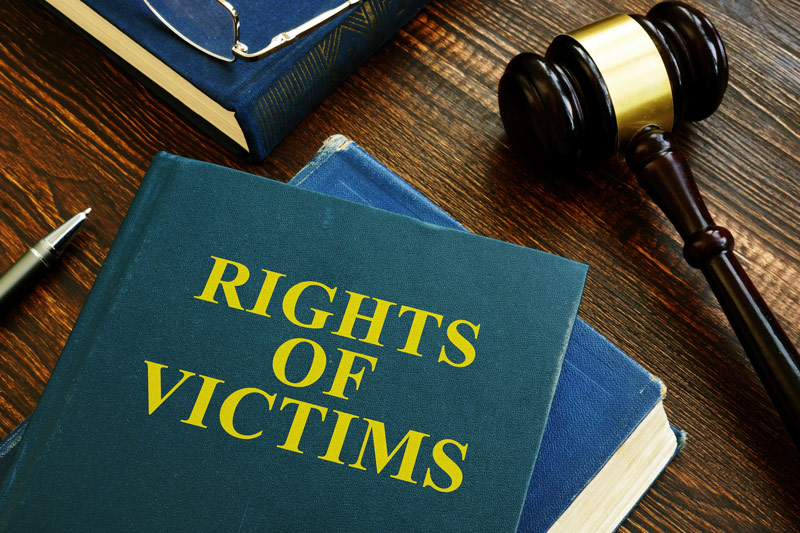Victims’ Rights

In California the victims of crime have state constitutional standing and rights. California is one of the leading states in the country guaranteeing that the victims of crime will be heard. It is important for each of you to know your rights. Victims and witnesses of crime have specific rights under the "Victims’ Bill of Rights" established by voter-passed Proposition 8 in June 1982 and under state laws. Here is an overview of these constitutional and statutory rights.
Right to Keep Address Confidential
In cases of child abuse, spousal abuse and sex crimes, victims have a right to have their addresses kept confidential. Their addresses may be given only to the attorney for the defendant, but will not appear on any forms or public documents.
Right Not to Be Threatened or Intimidated
If anyone threatens you, call your law enforcement agency to report the threat and contact the prosecutor immediately. It is a crime for anyone to attempt to dissuade or prevent you from assisting law enforcement agencies or prosecutors or from attending or giving testimony at any trial or proceeding authorized by law. It is a felony if any such efforts involve coercion, threats or force, or are done for financial gain.
Right to Be Present at Sentencing and Parole Hearings
Crime victims are entitled to appear at the sentencing hearing and to speak on matters concerning the crime, the penalty and the need for restitution. You do not need to be present at the sentencing proceeding, but you have a right to attend if you wish and to reasonably express your views. The law requires that the county probation department notify you of the sentencing hearing for felony cases. Practically speaking, you will want to contact the prosecuting district attorney to let him or her know of your wish to speak at the sentencing hearing.
You have a right to be informed of the sentence recommended by the probation officer to the court, but you may not view the actual probation report prior to sentencing. However, state law (Penal Code section 1203.05(a)) permits you to inspect the probation report within 60 days after the judgment is pronounced. You may want to write out a statement that you can read at the hearing or submit it in writing. You also may want to consider submitting a video tape. Those who have spoken at such hearings say they were given a restored sense of control and appreciated the active role in the criminal justice system.
Right to Be Informed of the Sentence Recommended by the Probation Officer
Victims have a right to make a statement at parole hearings. Parole hearings are held for prisoners serving an indeterminate term such as 15 years to life. You may want to write out a statement that you can read at the hearing or submit it in writing. You also may want to consider submitting a video tape. Those who have spoken at such hearings say they were given a restored sense of control and appreciated the active role in the criminal justice system.
To request notice of parole hearings and opportunity to speak, write to:
| Contact: | Board of Prison Terms Victims’ Assistance Program |
| Address: | 428 J Street, Sixth Floor Sacramento, CA 95814 |
| Phone: | (916) 327-5933 |
If the offender was sentenced to the California Youth Authority, send your written request to:
| Contact: | California Youth Authority Office of Prevention and Victims’ Services |
| Address: | 4241 Williamsborough Drive Sacramento, CA 95823 |
| Phone: | (916) 262-1392 |
Right to Restitution and Return of Property
Victims have a right to restitution from the person who is convicted of a misdemeanor or felony where the victim suffered economic loss a result of the offender’s conduct. The prosecuting attorney has an opportunity to assist in these assessments. The requirements are specified in Penal Code section 1202.4(b). If seeking the return of property, you may want to contact your local victim/witness assistance center for help in determining if your property can be returned to you. In some cases, it may take a while to have the property returned because they may be needed as evidence in court.
Your Sonoma County Victim Advocates can explain in more detail the items summarized above. Each advocate has years of experience and training to assist you in a very difficult and emotionally draining process. Your Victim Advocates can be reached at the address and phone number below. If the advocate normally assigned to your case is not available and you need immediate assistance be sure to ask for the Advocate of the Day.

 Translate
Translate